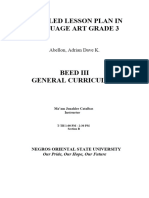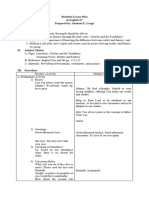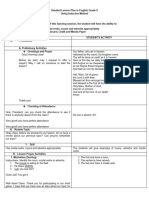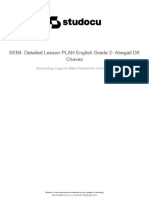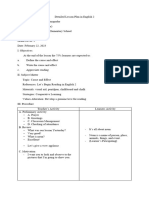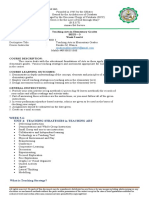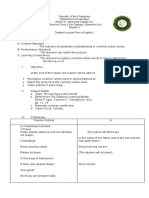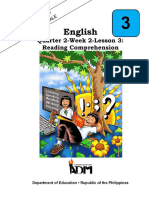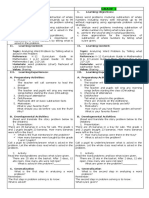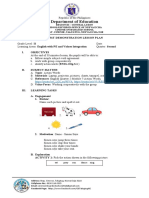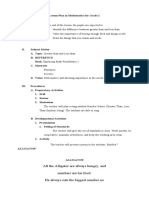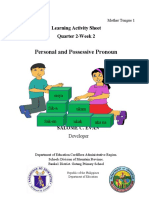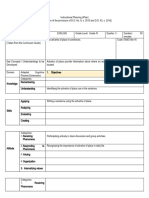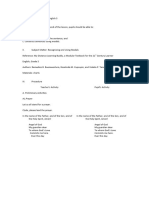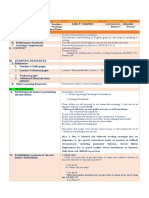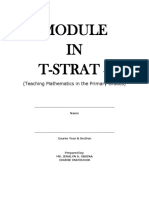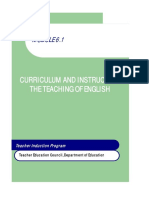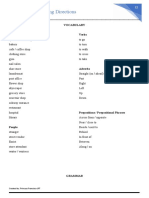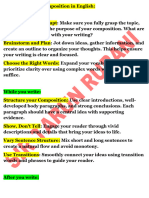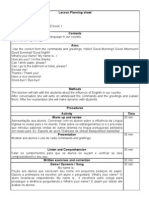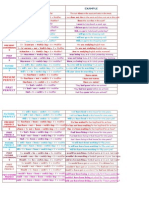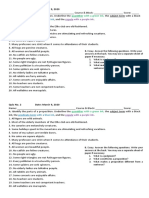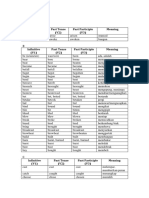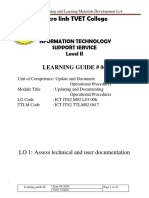100% found this document useful (1 vote)
820 views4 pagesCourse Syllabus For English For Elementary Education Majors
This 3 credit course syllabus is designed to prepare elementary education majors to teach English. Over 12 weeks, students will develop skills in grammar, vocabulary, speaking, listening, reading and writing. They will learn how to introduce themselves, provide instructions, develop activities and assessments for students. Coursework includes discussions, games, group work, presentations and exams. The goal is for students to demonstrate English language proficiency and ability to confidently teach language fundamentals to elementary students.
Uploaded by
Princess FranciscoCopyright
© © All Rights Reserved
We take content rights seriously. If you suspect this is your content, claim it here.
Available Formats
Download as DOCX, PDF, TXT or read online on Scribd
100% found this document useful (1 vote)
820 views4 pagesCourse Syllabus For English For Elementary Education Majors
This 3 credit course syllabus is designed to prepare elementary education majors to teach English. Over 12 weeks, students will develop skills in grammar, vocabulary, speaking, listening, reading and writing. They will learn how to introduce themselves, provide instructions, develop activities and assessments for students. Coursework includes discussions, games, group work, presentations and exams. The goal is for students to demonstrate English language proficiency and ability to confidently teach language fundamentals to elementary students.
Uploaded by
Princess FranciscoCopyright
© © All Rights Reserved
We take content rights seriously. If you suspect this is your content, claim it here.
Available Formats
Download as DOCX, PDF, TXT or read online on Scribd
/ 4
